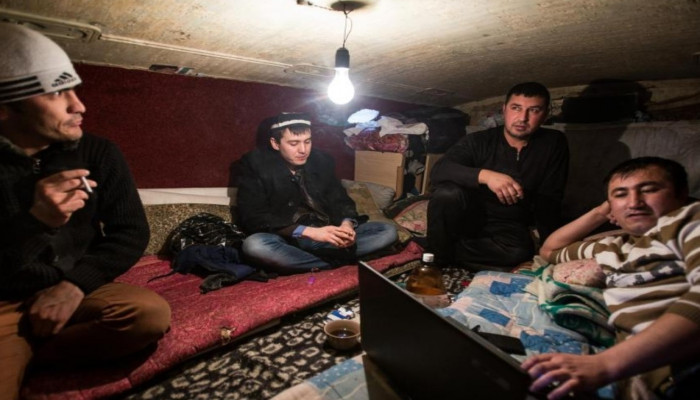Russia accelerates deportations as many Tajik migrants voluntarily leave
- In Reports
- 02:16 PM, Apr 01, 2024
- Myind Staff
In the aftermath of the deadliest terrorist attack in nearly two decades, Russia is deporting hundreds of foreigners for immigration violations.
Meanwhile, numerous Tajik migrant workers are departing the country voluntarily, apprehensive of a surge in xenophobia.
Russian law enforcement authorities have conducted extensive checks on immigrants in the country following the March 22 attack at a concert hall near Moscow, where gunmen killed 144 people. Four of the suspected gunmen are Tajik citizens.
According to spokeswoman Daria Lebedeva's post on Telegram, courts in St. Petersburg have ruled to deport 418 foreign citizens this week, while an additional 48 individuals must voluntarily leave the country.
The recent terrorist attack in Russia has led to a surge in xenophobic rhetoric and violence, particularly targeting the millions of migrant workers from Central Asia who form a significant part of the country's labour force.
These migrants are employed across various sectors such as construction, street cleaning, retail, and the restaurant industry. Faced with escalating hostility and fear, some migrant workers are now opting to return to their home countries.
Shakhnoza Nodiri, the deputy head of Tajikistan's Ministry of Labour, Migration, and Employment, disclosed on March 30 that the ministry has been inundated with numerous inquiries from individuals expressing their desire to depart from Russia. This surge in requests comes in the wake of heightened tensions following the recent terrorist attack.
However, experts warn that the departure of migrant workers could exacerbate Russia's already constrained labour market. The country currently boasts a post-Soviet record low unemployment rate of 2.9 percent, even as the Kremlin mobilises hundreds of thousands of individuals for its military operations in Ukraine. This tightening of the labour market is contributing to inflationary pressures, posing a threat to economic stability, according to analysts.
Image source: CBC News







Comments